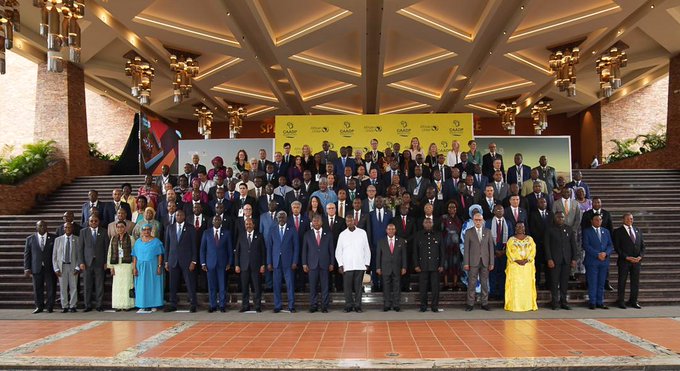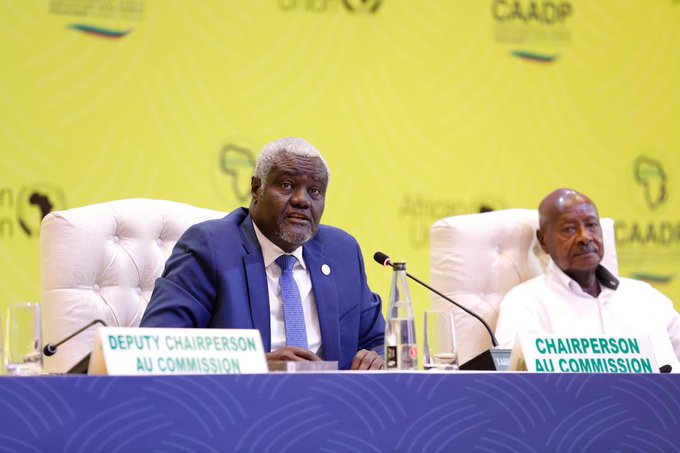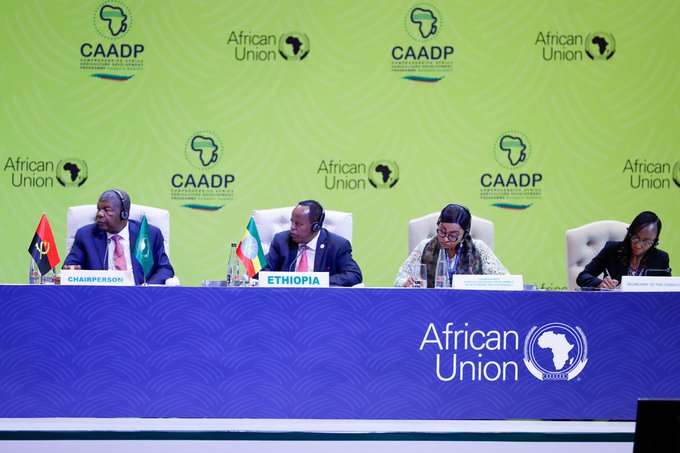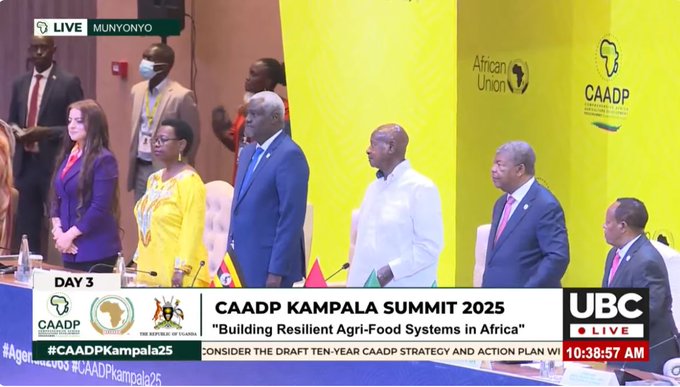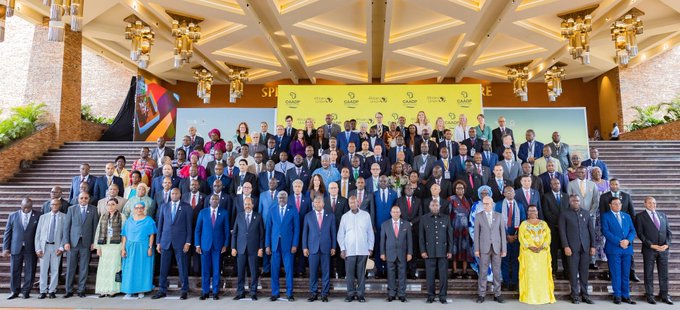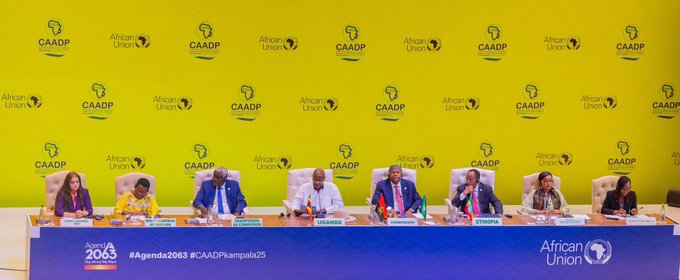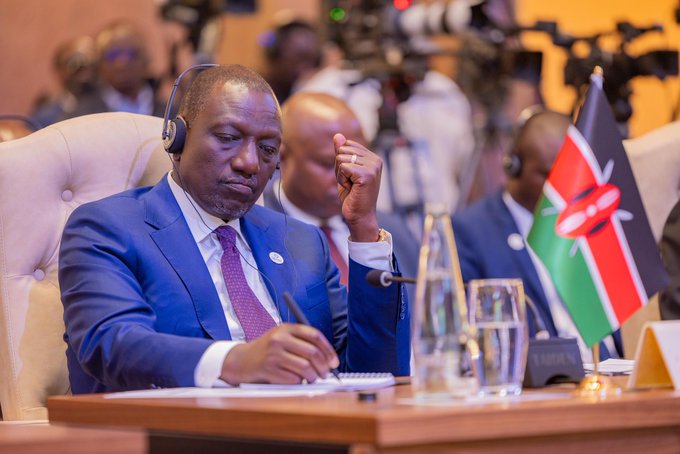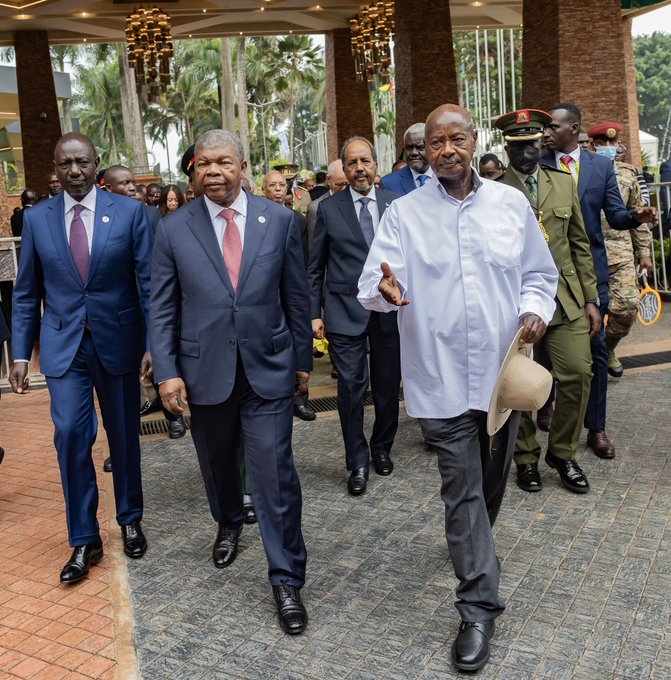KAMPALA, Uganda—President William Ruto has urged African nations to use shared approaches to create robust agricultural food systems.
The President urged African states to promote research and innovation, boost investments in regional agricultural infrastructure, and quicken the adoption of technology solutions.
He also urged international partners to coordinate their support with Africa’s transformation goal to guarantee that resources reach the places with the most need and impact.
“This is our moment to commit to a bold and transformative agenda for Africa’s food systems so that, together, we can build a robust and enduring foundation for sustainable agriculture,” he said.
Speaking during the African Union Extraordinary Summit on the Post-Malabo Comprehensive Africa Agriculture Development Programme (CAADP) held in Kampala, Uganda, he explained that these measures were the surest path to uplifting livelihoods, safeguarding the environment, and fulfilling the fundamental obligation to feed Africa.
“With the Comprehensive Africa Agriculture Development Programme, the vision of an Africa where no child goes to bed hungry, where every community enjoys access to safe and nutritious food, where agricultural practices safeguard the future of our planet, and where agriculture delivers employment and wealth for millions, is within reach,” he said.
Speech by H.E. Moussa Faki Mahamat @AUC_MoussaFaki, Chairperson of the @_AfricanUnion Commission at the Opening Ceremony of the Extraordinary Summit on the Post Malabo Comprehensive #Africa Agriculture Development Programme #CAADP in #Kampala, #Uganda.Read @…
All we know about Malabo and Kampala declarations
Other leaders who spoke at the summit were Presidents Yoweri Museveni (Uganda), Joào Lourenço (Angola), Évariste Ndayishimiye (Burundi), Hassan Sheikh Mohamud (Somalia), Brahim Ghali (Sahrawi), Taye Atske Selassie (Ethiopia), and African Union Commission Chairperson Moussa Faki Mahamat, among others.
The Malabo Declaration, whose implementation time concludes this year, was replaced by the Kampala Declaration, adopted at the summit.
At the conference, President Ruto pledged that the Kampala Declaration will be domesticated in Kenya as part of the National Agriculture Investment Plan for 2025–2029 and the second phase of the country’s Agriculture Sector Transformation and Growth Strategy 2019–2029.
Showing Now: CAADP Kampala Summit 2025Livestream ~ youtube.com/live/a79mZLNSY…#UBCUpdates | #CAADPKampala2025
According to him, Kenya is concentrating on boosting export manufacturing in crucial agricultural value chains, decreasing imports, minimising post-harvest losses, increasing production and productivity, and offering storage help.
President Ruto said that millions of Kenyan farmers now have access to necessary inputs, resulting in notable output increases.
“Our cumulative efforts to enhance food security are already yielding tangible results, showcasing the transformative power of implementing strategic agricultural interventions,” he said.
What President Museveni told his fellow regional leaders
The President pointed out that since the Malabo Declaration, Kenya has increased the area under irrigation by 147%, surpassing the African Union’s irrigation development goal.
President Museveni stated that Africa should adopt contemporary farming methods and lessen its fragmentation.
He emphasised additional steps, such as cultivating crops resistant to disease and drought and using commercial irrigation.
“Uganda has managed to transform its agriculture into a money economy, thus reducing poverty,” he said.
He pointed out that Africa’s abundant water resources could end famine if exploited appropriately.
𝗔𝗙𝗥𝗜𝗖𝗔𝗡 𝗖𝗢𝗨𝗡𝗧𝗥𝗜𝗘𝗦 𝗠𝗨𝗦𝗧 𝗖𝗢𝗟𝗟𝗔𝗕𝗢𝗥𝗔𝗧𝗘 𝗧𝗢 𝗕𝗨𝗜𝗟𝗗 𝗥𝗘𝗦𝗜𝗟𝗜𝗘𝗡𝗧 𝗙𝗢𝗢𝗗 𝗦𝗬𝗦𝗧𝗘𝗠𝗦President @WilliamsRuto has called on African countries to implement common strategies to build resilient agricultural food systems.The President urged…
President Museveni mentioned the enormous amounts of water in the Congo River, which empties into the Atlantic Ocean, as a resource that ought to be used in areas of Africa that lack water.
African Union member states devote at least 10% of their budgets to agriculture, and the continent’s agriculture development program strives for 6% yearly growth, according to President Lourenço.
Faki claimed that decreased food production was due to urban migration and young people’s disenchantment with agriculture.



